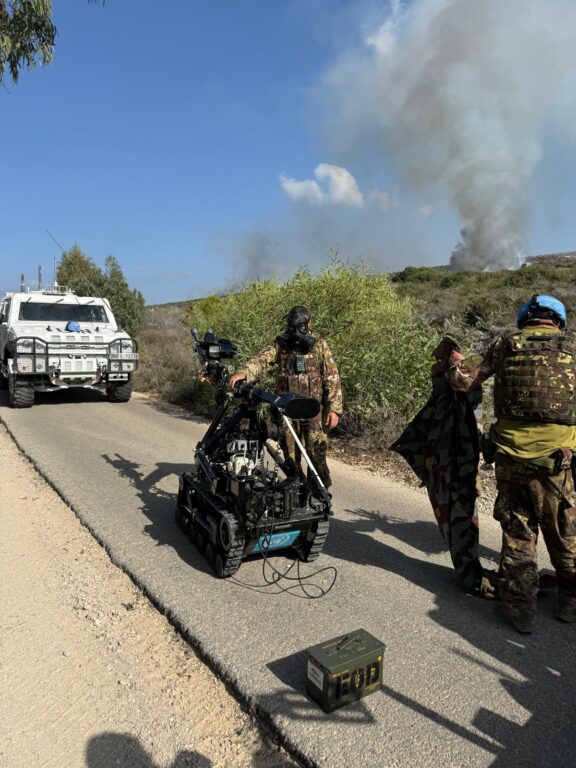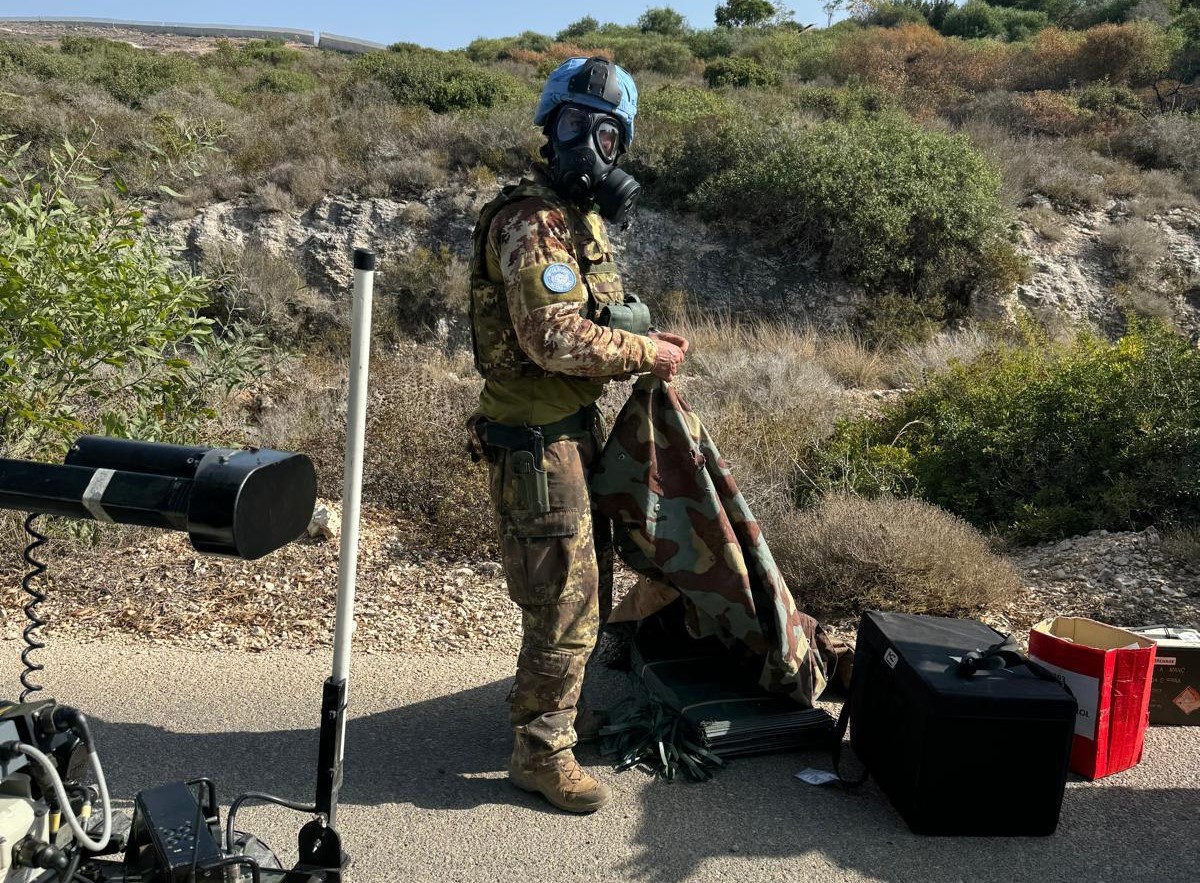The European Union regroups after four days. Note 27 makes Josep Borrell lose patience
A series of incendiary explosive devices positioned along the road leading to Forward Operating Base UNP 1-32A, in southern Lebanon, was identified this morning by a patrol of the Italian UNIFIL contingent during a logistical movement. A team of deminers from the national contingent, who intervened on site, secured the area but were unable to complete the cleaning operations because, for reasons still to be determined, one of the devices was triggered, causing a fire in the surroundings. There was no damage to people or vehicles. Israeli attacks on UNIFIL bases in southern Lebanon? What happened is “unacceptable”. Italian soldiers do not touch each other.” Italian Foreign Minister Antonio Tajani reiterated this today from Berlin, assuring that nevertheless “we will not leave the positions, also because it is a decision that belongs only to the “We don't run away from places where there are difficulties.” Tajani also dismissed with poorly concealed annoyance the suspicions filtered into Israeli government circles that the UNIFIL mission could become a convenient shield for the UN guerrillas. Hezbollah against the Jewish State. “Our soldiers have always done their duty, they are not Hezbollah terrorists,” he finally recalled that with the mission’s current rules of engagement, he does not. On the other hand, it would be inconceivable that Finil would take responsibility for disarming the Shiite militias.

The (late) condemnation of the EU
At the same time, the European Union expressed “serious concern over the recent escalation along the Blue Line, condemns all attacks on UN missions and expresses particular concern over attacks by the Defense Forces Israeli forces (IDF) against the UNIFIL forces, which caused the injury of several peacekeepers.” He did so in a statement published yesterday evening, after days of more or less explicit attacks by the Israeli army against UN bases in southern Lebanon which, the note continues, “constitute a serious violation of international law and are totally unacceptable” and which therefore “must stop immediately”. those most directly involved – Italy of Meloni and Crosetto, but also France and Spain, which currently commands the mission – had already taken it clearly from the first hours after the first attack against the general staff Naqura and. at two posts near the border. Yet it took another four days and four more military incidents for the EU to express and make its common position known. “It took too long to say something more than obvious, namely that it is unacceptable to attack Unifil: I would have liked the Member States to reach an agreement more quickly”, openly complained this morning the EU's high representative for foreign policy, Josep Borrell. Grievances which Borrell will also have the opportunity to explain to the foreign ministers at the 27 meeting today in Luxembourg to take stock of the crisis.
The clash between the 27 and the political match
According to behind the scenes, the joint declaration was blocked for days by the governments of Hungary and the Czech Republic in particular, which maintain a position closest to Israel's reasons. Until a few weeks ago, the one led by Giorgia Meloni could also be among the most understanding governments towards Tel Aviv, during the negotiation of the common EU documents. But the insistent refusals of the Netanyahu cabinet to facilitate a ceasefire in Gaza first, the extension of the conflict to Lebanon and finally the attacks against the Finufil bases where more than 1,000 Italian soldiers are stationed seem to have modified at least in part the diplomatic scenario. Even if Meloni does not intend for the moment to burn bridges of political dialogue neither with Israel nor with two of his main European allies, such as the leaders of Hungary and the Czech Republic, Viktor Orbán and Petr Fiala , strategic “hooks” taking into account the main objective of the Prime Minister in the years to come: that of opening a sovereignist political season also at the European level. Or at least push the EPP to open the doors to the right-wing European majority, towards the ECR group and beyond, freeing itself from the “unnatural” embrace with the Greens and the Socialists.
It is also for this reason, as well as for her role as rotating president of the G7, that the Italian Prime Minister found herself in recent days arbitrating between heterogeneous positions on the Israel-Hezbollah question, until reaching the joint note which, by asking Israel for “urgent explanations and a thorough investigation” into the attacks against Finil, and expressing concern about the IDF raids on “densely populated areas of Lebanon” (including Beirut), he recalls also that Hezbollah's continued rocket fire into Israel “must stop” and how essential it is that “all parties commit to and work toward the full implementation of Security Council Resolution 1701.” The one which foresees, among other things, that the Shiite militiamen evacuate the southern area of Lebanon and settle above the Litani River. An objective never really achieved since 2006, despite the deployment for this purpose also of the UN mission which found itself in the crosshairs – not only diplomatic – of Israel in recent days.
Cover image: EU High Representative for Foreign Policy Josep Borrell in a recent speech to the European Parliament – Strasbourg, October 7, 2024 (EPA/CHRISTOPHE PETIT TESSON)

